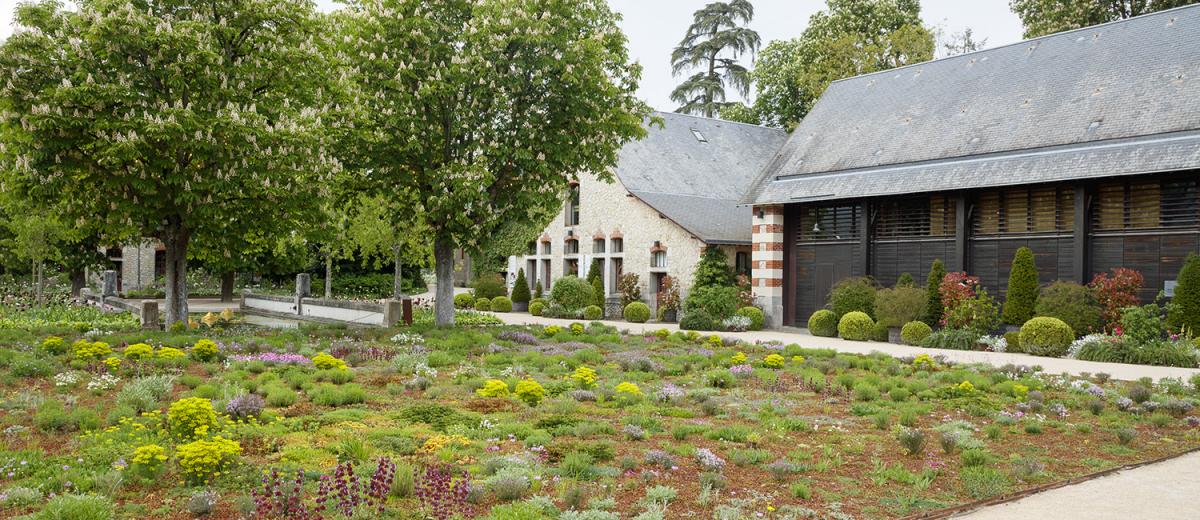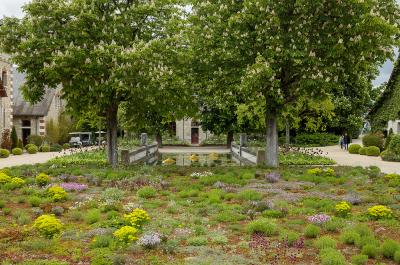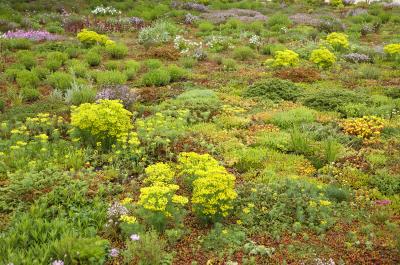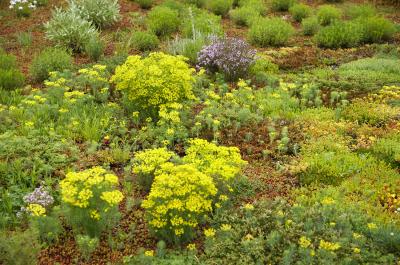Le paysage microcosmique
Garden by James Basson

DesignerS

James Basson has been living in the south of France for 20 years and manages Scape Design. He has earned a solid reputation as a creator of dry gardens requiring little upkeep, sustainable gardens that respect the natural landscape. He draws inspiration from his walks in the Maritime Alps, their evergreen foliage and the golden hues of summer landscapes, as well as from the coastal landscapes of Corsica, Sardinia and Greece.
His first experiments in recreating this type of landscape in a garden were mostly based on varieties of lavender, rosemary and thyme, with drip irrigation. His hero, the nurseryman and botanist Olivier Filippi, gradually showed him that he could work with such plants without need of irrigation, by maintaining good soil drainage.
In 2016, when he was participating in London’s Chelsea Flower Show for the second time, James Basson heard someone call his garden a “simple goat path”. He took it as a compliment. Another visitor recognised the living conditions that prevailed in his own environment and hired him on the spot. The result was a magnificent garden in the Gordes region in France, known for its sparse rainfall and long summers.
In such difficult conditions, James chooses his projects with care: “Our customers are people who love gardens and plants, not just pretty photos”. Results are stunning, lessons in how to work in collaboration with nature rather than at odds with it.
He likes dry stone walls and “bories”, those old rounded shelters that once accommodated and protected sheep in the fields of Provence. In order to avoid waste, he keeps his gardens on a human scale, and ensures that the manmade is immersed in the landscape.
In his projects, James Basson’s plant palette is often limited to three dominant species. Evergreen plants alternate with graminae and such colourful plants as Lomelosia for groundcover, golden-flowered Jerusalem sage, and tree spurge. These plants are particularly resilient. He also likes the mastic trees that grow in the scrublands and maquis. All these plants attract pollinators and fauna.
When it rains, the garden is nourished by springs, but the water soon disappears into the rocky substrate. Plants must survive 4 to 6 months of drought every year. Water is scarce. This is why he plants in 8 to 10 cm of gravel or crushed stone mulch, supplying himself with robust, long-rooted plants from Olivier Filippi. A long-term vision is required, working together for a beautiful, sustainable future.
A rock garden is a good way of mitigating the effects of hot dry summers and wet winters, as it protects the soil, retaining carbon and keeping plant bases dry. The soil must be decompacted and reshaped in order to create higher areas for plants and lower areas for pathways, so that water drains naturally. This also enables creation of a variety of features, so that the various plants can face the sun all day long.


